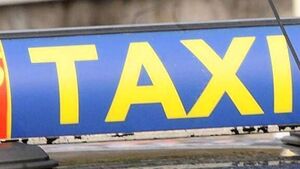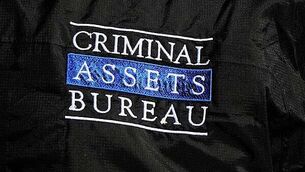Garda Commissioner challenges court granting disclosure to failed taxi licence applicants

High Court reporters
An Garda Síochána is asking the High Court to quash a District Court judge's decision to order discovery of documents and costs in favour of 38 non-national drivers who appealed the refusals of their taxi licence applications.
An Garda Síochána is currently acting as the taxi-licensing authority.
In the statement of grounds for the application for judicial review, which was granted leave for a hearing last month, the Garda Commissioner claims that the Dublin District Court judge who made the order last March acted outside the court's powers.
The Commissioner was granted a stay last month on the orders of the District Court until the conclusion of the judicial review.
The Commissioner accepts that District Court rules permit the making of discovery orders in civil proceedings. However, the Commissioner adds that in exercising its licencing jurisdiction, the court is not determining civil proceedings.
At the High Court today, Kilda Mooney BL, for the Commissioner, told Ms Justice Mary Rose Gearty that the issue of the jurisdiction of the District Court in licensing cases was a matter currently under consideration by the High Court with a judgment expected soon.
Ms Mooney said that "in nearly all" of the cases voluntary disclosures had already been made by gardaí to the refused applicants.
Ms Justice Gearty granted a stay on the District Court orders and adjourned the matter to October.
The issue under appeal is the 'suitability' of the applicants to hold Small Public Service Vehicle (SPSV) licences. The drivers sought disclosure regarding the 'suitability' aspect of the application process as part of their appeals.
In his affidavit, Garda Superintendent Stephen McCauley of the Dublin Regional Traffic Division, states the "fundamental duty" the licensing authority is charged with is to ensure public safety when awarding SPSVs.
Supt McCauley submits that the authority shall not grant a licence unless it is satisfied that the applicant is a 'suitable' person to hold a licence, as provided for in the Taxi Regulation Act 2013.
"The Act provides that the authority should have regard to a broad range of matters in determining whether an applicant is a suitable person to hold a licence.
"The matters include, but are not limited to: whether the applicant is of good character and any concerns raised regarding the applicant's suitability to hold a licence," he submits in his affidavit.
Supt McCauley referenced a related High Court case, and submitted:
"The High Court has confirmed that in assessing the suitability of an applicant for a licence, the authority was entitled to have regard to the immigration status of an applicant and whether they were lawfully entitled to reside and work in the State."
He said the authority was to "have regard to the immigration history of an applicant, including any findings of fraud or dishonesty in the assessment of a person's suitability".
Supt McCauley said that the Carriage office in the Dublin Metropolitan Region alone deals with between 2,000 and 4,000 applications every year and that of these applications there is a refusal rate of only five per cent.
"At all times, in making a decision to grant or refuse a licence, the issue of public safety is to the forefront of my decision," he said.





